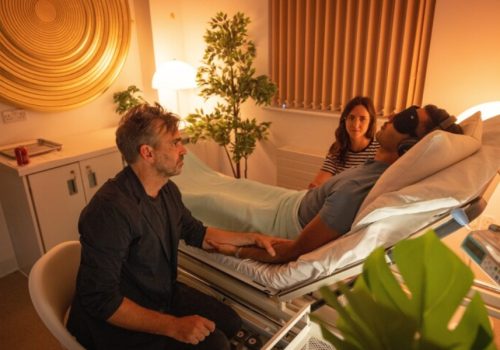How Office Workers Can Manage Carpal Tunnel Syndrome
Typing all day may pay the bills, but it can also leave hands feeling numb, stiff, or sore. Carpal tunnel syndrome is caused by pressure on the median nerve in the wrist, leading to tingling or pain. For office workers, this is a common issue because long hours at the keyboard or mouse can strain the wrist repeatedly. Recognising the early signs helps prevent the problem from becoming more severe, and seeking carpal tunnel syndrome treatment early can make recovery smoother.
Early Steps for Relief
When tingling fingers or stiff wrists appear, simple actions can help. Adjusting desk height, using a supportive mouse pad, and taking short breaks reduce stress on the wrists. Light stretches during the day improve blood flow and keep joints moving smoothly. Paying attention to posture and alternating tasks to avoid long stretches of typing also helps. Consistency with these habits can delay or reduce the need for medical support. However, when symptoms persist, professional advice should be sought to avoid long-term problems and ensure that treatment begins before discomfort interferes with daily activities.
Role of Physiotherapy
Physiotherapy provides tailored plans for office workers dealing with wrist pain. A physiotherapist may recommend exercises that strengthen hand muscles and improve posture at the desk. Techniques such as manual therapy and guided stretching address stiffness, while ergonomic advice helps prevent recurrence. For those dealing with mild cases, physiotherapy in Singapore can be a first line of support that focuses on restoring comfort without invasive procedures.
Options for Carpal Tunnel Syndrome Treatment
When symptoms do not improve with basic changes, medical intervention may be needed. Carpal tunnel syndrome treatment can include splinting at night to keep the wrist in a neutral position, or medication to ease swelling. In more persistent cases, minor surgical procedures release pressure on the median nerve. These approaches aim to provide lasting relief, allowing individuals to return to daily tasks without constant discomfort.
Combining Therapy and Daily Habits
Managing wrist health is most effective when medical support and daily practices work hand in hand. Office workers who receive carpal tunnel syndrome treatment often benefit from adding gentle stretches, switching keyboard angles, and using chairs that encourage upright posture. Simple lifestyle steps such as taking regular breaks, keeping wrists in a neutral position, and avoiding long periods of repetitive motion can make a difference too. This combined approach keeps wrists supported both in and out of the workplace, creating balance between recovery and prevention while lowering the chance of symptoms returning.
Ergonomic Tools and Support
Workplaces now offer more ergonomic solutions, from split keyboards to adjustable desks. These tools lower the strain that builds up over time. Physiotherapy in Singapore often integrates these tools into personalised treatment, ensuring that advice extends beyond the clinic. By blending technology with therapy, workers are given practical options that help keep wrists moving freely.
When to Seek Professional Help
Persistent symptoms should never be brushed off. If pain, numbness, or weakness continues despite rest and help, consulting a specialist becomes necessary. Early medical advice ensures that carpal tunnel syndrome treatment is provided at the right time, limiting the risk of long-term damage. Seeking timely care can prevent reduced grip strength, long-lasting discomfort, and even loss of coordination in the hands, which may affect not only work but also everyday tasks like cooking, carrying groceries, or writing comfortably.
A Practical Outlook
Carpal tunnel syndrome does not have to be a career-long burden. With early action, supportive changes, and professional guidance, wrist health can be managed effectively. Whether through physiotherapy in Singapore, medical treatment, or a mix of both, office workers have options to keep typing without feeling trapped by pain. Contact Orchard Health Clinic to find support tailored for office workers dealing with wrist pain and carpal tunnel syndrome.





